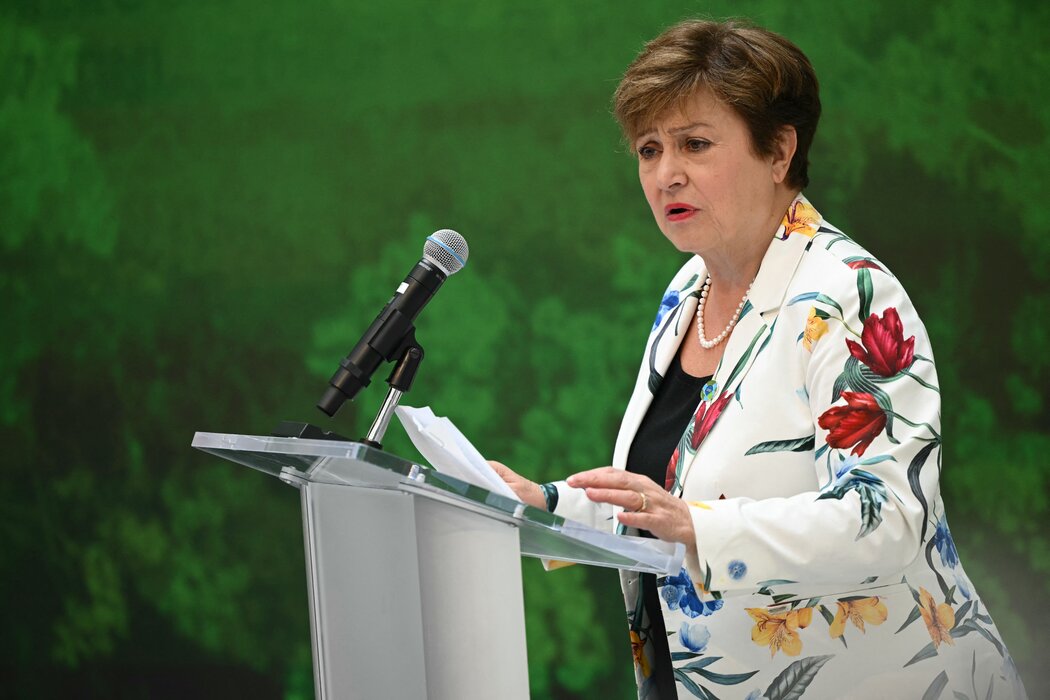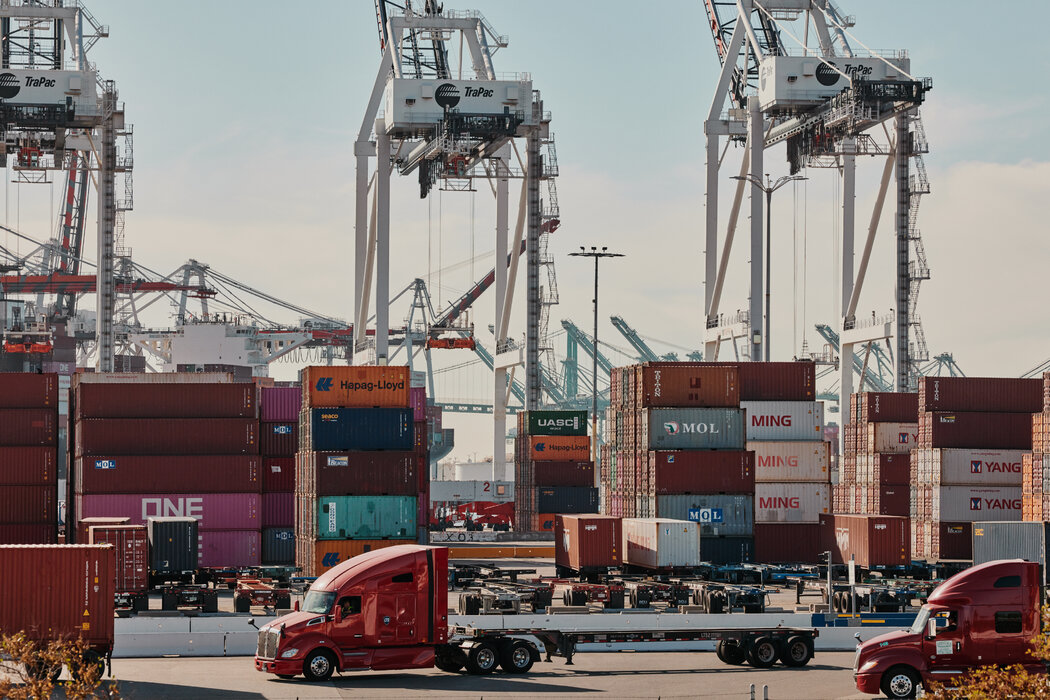


Meeting outside Paris last week, top officials from France, Germany and Italy pledged to pursue a coordinated economic policy to counter stepped-up efforts by Washington and Beijing to protect their own homegrown businesses.
上周,法国、德国和意大利的高级官员在巴黎郊外举行会议,承诺采取协同的经济政策,对抗华盛顿和北京加紧保护本国企业的做法。
The three European countries have joined the parade of others that are enthusiastically embracing industrial policies — the catchall term for a variety of measures like targeted subsidies, tax incentives, regulations and trade restrictions — meant to steer an economy.
这三个欧洲国家加入了热情拥护产业政策的行列。产业政策是一系列引导经济措施的总称,包括有针对性的补贴、税收激励、监管和贸易限制等。
More than 2,500 industrial policies were introduced last year, roughly three times the number in 2019, according to a new study. And most were imposed by the richest, most advanced economies — many of which could previously be counted on to criticize such tactics.
一项新研究显示,去年各国出台了2500多项产业政策,大约是2019年的三倍。其中大多数都是由最富有、最发达的经济体实施——其中一些经济体以前往往会批评这些做法。
The measures are generally popular at home, but the trend is worrying some international leaders and economists who warn that such top-down economic interventions could end up slowing worldwide growth.
各国国内普遍欢迎这类措施,但这种趋势令一些国际领导人和经济学家感到担忧,他们警告说,这种自上而下的经济干预可能最终会减缓全球经济增长。
The sharpened debate is sure to be on display at the economic lollapalooza that opens Wednesday in Washington — otherwise known as the annual spring meetings of the International Monetary Fund and the World Bank.
周三于华盛顿开幕的国际货币基金组织和世界银行年度春季会议这一经济盛事之上,肯定会出现关于这一话题的激烈争论。

“There are different ways of shooting yourself in the foot,” M. Ayhan Kose, the deputy chief economist of the World Bank, said about the trend of rich countries pursuing industrial policies. “This is one way of doing it.”
“搬起石头砸自己的脚有很多种不同的方法,”世界银行副首席经济学家阿伊汗·科塞在谈到富裕国家推行产业政策的趋势时说。“这是其中的一种。”
And in a speech last week, Kristalina Georgieva, the I.M.F.’s managing director, cautioned that except in extraordinary circumstances, the case for government intervention was weak.
国际货币基金组织总裁克里斯塔利娜·格奥尔基耶娃在上周的演讲中警告说,除非有特殊情况,否则政府干预的理由并不充分。
Whether and how ardently governments should try to control their economies has been vigorously debated since the Industrial Revolution. The current wave of policies, though, is a stark contrast to the classic open markets, hands-off government ideology championed by the citadels of capitalism in recent decades.
自工业革命以来,政府是否应该以及在多大程度上努力控制本国经济,一直是人们激烈争论的焦点。然而,当前的政策浪潮与近几十年来资本主义阵营所倡导的典型开放市场、政府不干涉的意识形态形成了剧烈反差。
That faith in the superiority of free-market policies was deeply shaken in recent years by a string of global jolts — the pandemic, supply chain meltdowns, soaring inflation and interest rates, Russia’s invasion of Ukraine, and rising tensions between the United States and China.
近年来,疫情、供应链崩溃、通胀和利率飙升、俄罗斯入侵乌克兰,以及美中之间紧张的关系日益加剧等一系列全球冲击,深深动摇了人们对自由市场政策优越性的信念。
In many capitals, security, resilience and self-sufficiency were pushed to the front of the list of economic policy goals along with growth and efficiency.
在许多国家的政府,安全、复原力和自给自足等事项,与增长和效率一起,被推到经济政策目标清单前列。
After years of complaints about China’s subsidies of private and state-owned industries, the United States and Europe have increasingly copied Beijing’s playbook, undertaking multibillion-dollar industrial policies focused on critical technology and climate change.
多年来,美国和欧洲一直在抱怨中国对私营和国有企业的补贴,现在它们日益效仿北京的做法,推出了以关键技术和气候变化为重点、价值数十亿美元的产业政策。
The United States passed two mammoth bills in 2022 to strengthen its domestic semiconductor industry and renewable energy sector. Europe passed its own Green Deal Industrial Plan last year to speed the energy transition. Soon after, South Korea approved the K-Chips Act to support its semiconductor production.
美国在2022年通过了两项庞大的法案,以加强国内半导体产业和可再生能源产业。欧洲去年通过了自己的《绿色交易产业计划》,以加速能源转型。不久之后,韩国批准了《K芯片法案》,以支持其半导体生产。
“A few years ago, when I was starting out as finance minister, you couldn’t pronounce the words ‘European economic policy’ or ‘European industrial policy,’” Bruno Le Maire, France’s finance minister, said last week after the ministers’ meeting.
“几年前我刚开始担任财长的时候,‘欧洲经济政策’或‘欧洲产业政策’这些词,你根本说不出口,”法国财长布鲁诺·勒梅尔上周在财长会议结束后表示。
Positive appraisals of the approach have grown in recent years. One overview of the subject by a team that included Dani Rodrik, a Harvard economist, found that the “recent crop of papers offers in general a more positive take on industrial policy,” compared with the traditional “knee-jerk opposition from economists.”
近年来,对这种方法的正面评价在增加。哈佛大学经济学家丹尼·罗德里克等人组成的团队对此做了综述,发现,与传统的“经济学家下意识的反对”相比,“最近的一批论文总体上对产业政策提出了更正面的看法”。
Joseph E. Stiglitz, a Nobel Prize-winning professor at Columbia University, has called industrial policy a “no-brainer.”
诺贝尔奖得主、哥伦比亚大学教授约瑟夫·斯蒂格利茨称,应该“不假思索地”采取产业政策。
But many economists like Mr. Kose of the World Bank remain skeptics, arguing that most industrial policies will end up reducing overall growth, making things worse rather than better.
但世界银行的科塞等许多经济学家仍然持怀疑态度,他们认为,大多数产业政策最终会降低整体增长,使情况变得更糟,而不是更好。
In response to the latest wave of interventions, the I.M.F. has drawn up a new set of guidelines for when and how industrial policies should be carried out.
作为对最新一波干预的回应,国际货币基金组织制定了一套新的分析指导,规定了何时以及如何实施产业政策。

There are gains, if they are done right and used to address an extraordinary market failure, like the dangers posed by climate change, the I.M.F. says. That means clearly identifying the social benefits like limiting greenhouse gases, broadly sharing innovations across borders and refraining from discriminating against foreign firms.
国际货币基金组织表示,如果做法得当,并用于解决特殊的市场失灵问题,比如气候变化带来的危险,产业政策可以是有益的。这意味着要明确识别社会效益,比如限制温室气体排放,跨国广泛分享创新成果,以及避免歧视外国公司。
But much of the analysis has been devoted to how easy it is to get things wrong, by misallocating or wasting money, giving powerful business interests too much sway over government decisions or setting off a tit-for-tat trade war.
但是,该分析的主要部分是在讨论产业政策有多么容易出错,比如资金分配不当或浪费,让强大的商业利益集团对政府决策产生太大的影响力,或者引发针锋相对的贸易战。
“What stands out about this current resurgence is that there is a reliance on costly subsidies,” said Era Dabla-Norris, an author of the analysis. And these are often “combined with other types of discriminatory measures against foreign firms.”
该分析报告的作者之一埃拉·达布拉-诺里斯表示:“当前产业政策抬头的突出之处在于依赖于成本高昂的补贴。”这些措施往往“与针对外国公司的其他类型歧视性措施结合在一起”。
When protectionist measures distort global trade and investment flows, she said, “the global economy loses out.”
她说,当保护主义措施扭曲全球贸易和投资流动时,“全球经济就会蒙受损失。”
Governments meddle in markets for all kinds of reasons — to prevent job losses, spur investments into a particular sector or freeze out a geopolitical rival.
各国政府会出于各种各样的原因干预市场——防止失业,刺激对特定行业的投资,或将地缘政治竞争对手拒之门外。
Of the 2,500 interventions introduced last year, protecting domestic industries accounted for the largest chunk, followed by combating climate change or shoring up supply chains, according to a study done in conjunction with the I.M.F. Measures that cited national security as the motivation made up the smallest share.
根据国际货币基金组织联合进行的一项研究显示,在去年出台的2500项干预措施中,保护国内产业占了最大的比例,其次是应对气候变化或加强供应链,以国家安全为动机的措施所占的比例最小。
The data also suggested that when a country introduced a subsidy, there was roughly a 75 percent chance that within a year, another country would introduce a similar one on the same product.
数据还表明,当一个国家实施补贴时,在一年内,另一个国家对同一种产品实施类似补贴的可能性约为75%。

As fears about Europe’s ability to compete with the United States and China increase, the European Union seems determined to move ahead with more coordinated economic interventions — even though its members do not necessarily agree on which ones.
随着人们进一步担心欧洲无法同美国和中国竞争,欧盟似乎决心在经济干预措施上进行更多的配合,尽管成员国不一定就采取何种干预措施达成一致。
France has proposed the most aggressive measures, including a provision to reserve half of public spending from industrial policy on European-made products and services, while Germany has been more skeptical of Buy Europe approaches.
法国提出了最激进的措施,其中包括规定将产业政策中一半的公共支出用于购买欧洲制造的产品和服务,而德国则对“购买欧洲货”的做法有更多疑虑。
But there is support across the board for increasing funding, slashing cumbersome regulations and promoting a single market for investments and savings.
但各方都支持增加资金,削减繁琐的监管,推动建立投资和储蓄的单一市场。
In February, the European Parliament agreed to increase its own green industrial capacity, and in March, the bloc adopted regulations to secure its supply of essential raw materials and bolster local production. Members also proposed for the first time a joint defense industrial strategy.
今年2月,欧洲议会同意提高欧洲的绿色工业产能。今年3月,该机构通过相关规定,确保基本原材料的供应,并支持本地生产。成员国还首次提出了联合国防工业战略。
The French, German and Italian economic ministers have been gathering to develop policies to stimulate green and digital technologies before E.U. leaders meet this year to adopt a new five-year strategic plan.
在欧盟领导人今年开会通过一项新的五年战略计划之前,法国、德国和意大利的经济部长们已经聚在一起,制定刺激绿色和数字技术的政策。
Now that “the term ‘industrial policy’ is no longer taboo,” said Mr. Le Maire, France’s finance minister, “Europe needs to show its teeth, and show that it’s determined to defend its industry.”
现在,“‘产业政策’这个词不再是禁忌,”法国财政部长勒梅尔说,“欧洲需要亮出牙齿,表明它决心捍卫自己的产业。”
(本新闻网址:https://www.geilien.cn/news/2024/nyfreemarket.html)
Patricia Cohen常驻伦敦,撰写与全球经济有关的新闻。
翻译:纽约时报中文网